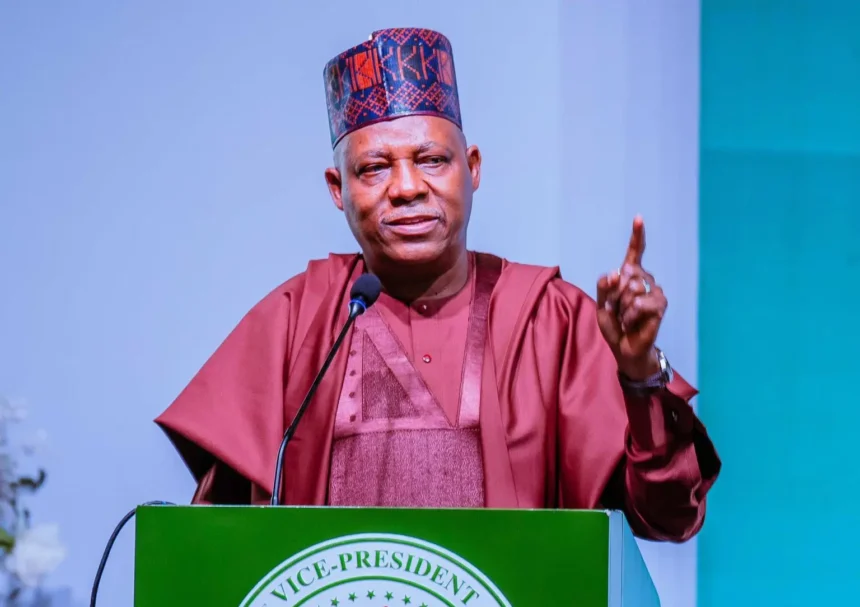Nigerian Vice President Kashim Shettima has put nutrition squarely at the forefront of Nigeria’s food security efforts, unveiling an ambitious plan to improve nutrition nationwide and calling on faith and traditional leaders to champion the cause in their communities.
Delivering remarks at a high-level At Faith Leaders Dialogue in Abuja on Tuesday, Shettima stressed that Nigeria’s quest for food security must go beyond just increasing agricultural production and ensuring abundant food supplies. Achieving nutritional quality and nutritious diets is equally crucial for the nation’s future readiness, he argued.
“We must proclaim to the world that our commitment to producing food of unparalleled richness is not rhetoric,” Shettima declared at the event themed “Faith Leaders as Catalysts for Enhanced Human Capital Through Nutrition.”
“This gathering is a solemn pledge to safeguard our well-being and preserve the legacy of generations yet to come.”
The vice president appealed directly to religious and traditional leaders in attendance, calling them “prime cultural influencers” who could serve as a “gateway to a Nigeria defined by mutual understanding, peace, unity and social cohesion” on nutrition goals.
Shettima said the Tinubu administration has demonstrated its commitment to prioritizing nutrition as an integral part of its food security agenda. He highlighted plans for quality, cost-effective nutrition services targeting vulnerable groups like pregnant and lactating women, adolescent girls, and children under five years old.
“President Bola Ahmed Tinubu has demonstrated his commitment to prioritising nutrition as an integral component of our quest for food sufficiency. This is our inspiration to implement quality, cost-effective nutrition services,” he said.
“From providing support to pregnant and lactating women to ensuring the well-being of adolescent girls and children under five years of age, President Tinubu’s vision has propelled us towards a future where every Nigerian has access to the nourishment they need to thrive.”
He pointed to the World Bank-assisted Accelerating Nutrition Results in Nigeria (ANRiN) program as one vital initiative aimed at scaling up nutrition interventions across the country.
However, Shettima stressed that the Nigerian government cannot achieve its nutrition ambitions alone. “We depend on the support and guidance of those who wield influence within our communities to drive this change,” he urged religious and traditional figures.
The vice president called on faith and cultural leaders to champion proper nutrition practices, integrating lessons on healthy diets and eating habits into places of worship, community gatherings and cultural events.
Tuesday’s high-level dialogue brought together policymakers, development partners, donor agencies and religious representatives to chart a comprehensive way forward on achieving Nigeria’s nutrition goals.
Improving nutrition indicators like stunting and wasting among children is viewed as critical for unleashing Nigeria’s full human capital potential. Experts warn that a failure to address malnutrition could jeopardize the gains of increased food production.









